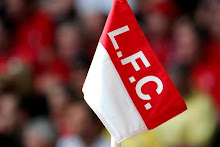
In the summer of 1961, the cornerstone of the first Shankly revolution was in place with the arrival of a highly-rated Scottish duo. “The very beginning of Liverpool’s rise,” was how the legendary Kop boss described it, “Yeats at the back, St John at the front.”
Costing a bargain £37,500, Ian St John joined compatriot Ron Yeats at Anfield and the striker admits that his first meeting with Shankly took him by surprise after he Newcastle United had shown a keen interest in the then 22-year-old.
“My first meeting with the boss was in the dressing room at Motherwell where I'd just finished playing a game,” remembers the Saint, now 71.
“The manager came in and said “just you hang on a second, there’s somebody here to see you”. I didn’t know who the person was, so the lads all leave having showered and left and I’m just sat there on my own.
“Then a very dynamic man and smart dresser came in and said “Hello son, “I’m going to take you to Liverpool.” I never knew about that. The next day our baby went to my mother-in-law’s as we got in a Rolls-Royce and set off all the way down to Liverpool.
“I didn’t know of Bill Shankly because 50 years ago there was no football on TV around and only the odd magazine but I learned about him once I had met him, by talking to people in England and everybody had a good word about him as a player and as a guy so I realised that he was a genuine character.”
Having netted one of the fastest hat tricks of all time in two-and-a-half minutes during his time at Motherwell, St John signalled his intent with three goals on his debut. Unfortunately for the Saint, Liverpool lost 4-3 to Everton in the Merseyside Senior Cup final at Goodison Park.
“They were known back then as The Millionaires Club,” he recalls.
“I know other teams have taken over that mantle in recent years but Littlewoods’ John Moores owned them back then so they were the millionaire club and the rivalry was great between the two sets of fans.
“Ours supporters were stuck in the Second Division but under Shankly were feeling that they were going to go somewhere because he convinced them that we were going to be the team and he was true to his word and he was true to his word and we got ourselves up and out of it and into the top flight.”
Despite the defeat, Melwood’s newest recruit found out how positively different life was football-wise south of the Highland boarder.
“At most clubs, not just Motherwell, training was running round the pitch or up and down terracing. It was nonsense, absolute nonsense. It was fitness work but that was it. There was no ball work.
“When I arrived at Liverpool, we got to the training ground which was an old cricket pavilion that needed pulling down but the pitches were lovely and goals everywhere and bags of balls.
“Everything was done with a ball at Liverpool; there was no silly running up terraces. For me it was like being a kid at Christmas because it was completely different to what I had left up in Scotland.”
St John speaks fondly of the golden era during which Shankly took Liverpool from the lowly Second Division to the summit of English football and beyond. He also remembers the manager’s philosophy that bitter rivalries and religious bigotry had no place in the dressing room.
“Liverpool’s history was very much Scottish because the first chairman was a Scotsman and they have always had a lot of Scots in their team but it was great and the boss encouraged us.
"One thing he did say though was 'I don't want to hear anybody talking about Celtic and Rangers in here.' He put the frighteners on us even though I would never do that myself as an ex-Motherwell player. He was talking to all the Scots and he meant it. He would have no bigotry at all.
"He said 'There's only one religion, and that's football'. That was it - football was our religion."
St John believes that Shankly’s legacy has stood the test of time due to his obsession with the game which becomes more prominent with every year that passes.
He said: “He certainly had an aura. He’d walk into a room and people would immediately say ‘there’s Bill Shankly’. He was an outgoing man so he liked an audience; he liked to talk to people.
“He could never have gone in, got a newspaper and had a quiet read. He would go in looking to see who was there and if people wanted to talk football, he would talk football.
“If he got a guy who was a football fan, that was it; it didn’t matter who his team was, he would talk to him about the guy’s team. And he’d know everything about the guy’s team, never mind Liverpool so he was a very exceptional man.
“He was the biggest football fan in the world. He was quite amazing. A lot of people get enough of football and say ‘shut the door’ for a day or half a day but he was there 24 hours a day talking it.”
“He could be a hard man when he needed to be and give people a bollocking. I’d been on the receiving end of it myself! But at the same time, you could tell he had a love for his team and his club.”

